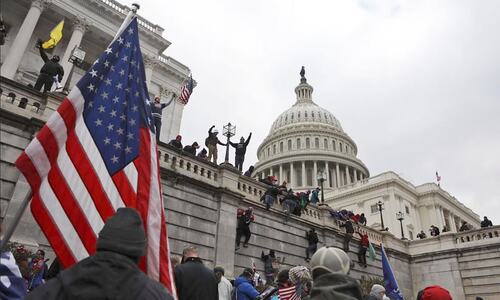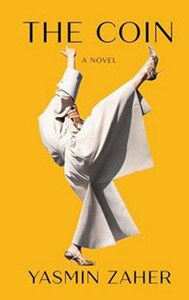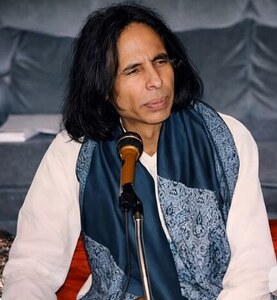Though Dr Nayyar Masood stands distinguished as an Urdu short story writer because of his highly refined symbolic expression, he is equally well-versed in the field of literary research. However, Dr Masood’s one position is slightly different from the other. He is a short story writer in his own right, but in the field of research he comes second to his father, the great scholar, late Syed Masood Hasan Rizvi.
Masood shares with his father a deep involvement in the study of Urdu marsiya, with particular reference to Mir Anis. His studies in this respect, which have come to us in installments, appear to be an attempt to complete what had been left unfinished by his father and is in the form of two books, Marsiya Khwani Ka Funn and Marka-i-Anis-au-Dabir. Added to this is a recently published exhaustive biography of Mir Anis.
At the behest of Muqtadra Qaumi Zaban, Masood has compiled an abridged version of his magnum opus. As he explains in the brief introductory note, while compiling this version, he has kept in view the requirements of the lay readers who just want to know about the life and works of Anis and wish to read a smoothly narrated biography divested of research references and foot notes.
This abridged edition carries with it a foreword written by Iftikhar Arif who informs the reader that the present volume is first in the series of introductory books about leading figures of Urdu to be released by Muqtadra. I, for one, genuinely wish to see whether this programme is carried forward in a meaningful manner.
Anis is acknowledged as a major Urdu poet and there seems to be a consensus that he comes fourth in the line of great poets, following Mir, Ghalib, and Iqbal. But we should not forget that Maulana Shibli was the first to discover his greatness as a poet and made an analytical study of his marsiyas. We thus see Anis moving away from the rank of traditional marsiya writers and joining mainstream Urdu poets.
In the present study, Masood has, after much research, made some interesting revelations. He tells us that studies of Anis were not confined to Urdu and Persian alone; he was also greatly inspired by works written in Awadhi language. Two great works, Malik Muhammad Jayasi’s Padmavat and Tulsidas’s Ramcharitmanas were studied by Anis. Masood argues that the influence of these two classics can easily be traced in Anis’s marsiyas.
Masood has also quoted Hindi fiction writer, Uday Prakash, who says that in the state of Riwa, the Muslim officials of Hindu Rajas arranged majalis in their houses where marsiyas written in Awadhi were recited. They were popularly known to be written by Anis.
Another revelation in the book is that while in Faizabad, Anis learnt his lessons from two religious scholars; one was a Shia scholar, Maulvi Mir Najaf, and the other was a Hanafi scholar, Maulvi Haider Ali Faizabadi.
Anis was well-versed in Persian as well as in Arabic. He had also taken the pains of undergoing military training and had thorough knowledge of old and new weapons.
Masood’s research tells us that from among the leading poets of Lucknow, Aatish was the first to recognise Anis’s talent.
Prior to 1857, Anis, as pointed out by Dr Masood, never accepted invitations from other cities. He, as a marsiya khwan, strictly confined himself to the Muharram congregations of Lucknow. It was only after 1857, when Lucknow was in ruins, that he accepted invitations from Azimabad and recited marsiyas in majalis there. His anger at the indifference of Lucknow wallas compelled him to go to other cities for masriya khwani and led him to stop reciting his marsiyas in Imambargahs in Lucknow.
The book also recounts how, when Anis fell ill, the entire city was in a state of despair and prayed for his recovery. He breathed his last on December 10, 1874.

































